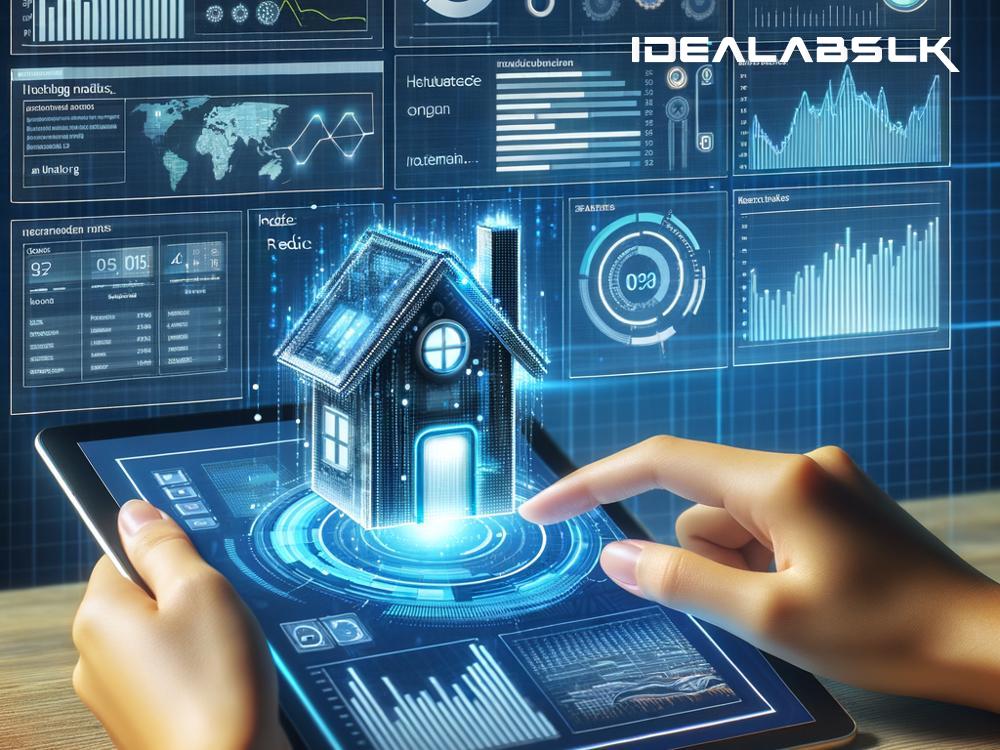AI Revolutionizing the Mortgage Industry: Simplifying Predictions
In the realm of mortgages, where huge amounts of money and long-term financial commitments are at stake, making accurate predictions is not just beneficial, it's essential. Enter Artificial Intelligence (AI), a game-changer in predicting mortgage trends and outcomes. AI's integration into mortgage prediction models is revolutionizing the industry, making processes faster, more accurate, and significantly more efficient. Let's break down this complex world into simpler terms to understand how AI is making a difference.
Understanding Mortgage Prediction Models
First, let's talk about what mortgage prediction models are. In simpler terms, these models are like highly intelligent calculators. They take in loads of information—like your income, spending habits, the economy's state, and more—and then predict how likely you are to pay back a mortgage, what interest rates you might get, and how the housing market is expected to behave. Traditionally, these predictions required human experts to analyze patterns, a process that was not only time-consuming but also prone to human error.
Here Comes AI!
AI changes the game by bringing in its ability to process vast amounts of data much more quickly than any human could. But AI doesn't just work fast; it works smart. It can learn from patterns in data that humans might not even notice, getting better and smarter over time. This is especially useful in mortgage prediction models. AI can look at a wide range of factors, from big economic trends to the tiny details of a borrower's financial history, and make predictions that are accurate, personalized, and incredibly valuable for both lenders and borrowers.
How Does AI Do It?
-
Learning from Data: AI systems use something called machine learning, where they're fed huge amounts of data and learn to recognize patterns. For mortgages, this could mean looking at past loan applications and their outcomes, understanding which factors led to successful repayments and which didn't.
-
Adapting to New Information: The housing market is always changing, and what worked yesterday might not work tomorrow. AI models can adjust to new information much more quickly than traditional models, meaning they're always up-to-date with the latest trends.
-
Personalized Predictions: Everyone's financial situation is unique. AI can consider a wide array of individual factors, offering personalized advice on the best mortgage types, terms, and rates for each person.
-
Risk Assessment: By accurately predicting the likelihood of a borrower defaulting, AI helps lenders manage their risks better. This could lead to more people qualifying for mortgages since lenders have a clearer understanding of the risk involved.
The Benefits of AI in Mortgage Prediction
The integration of AI brings numerous benefits, including:
- Time and Cost Efficiency: Processes that used to take days can now be completed in minutes, reducing costs and improving customer experience.
- Accuracy: With AI, the chances of human error are significantly reduced, leading to more reliable predictions.
- Access to Mortgages: Better risk assessment means lenders can offer mortgages to a broader range of borrowers, potentially making the dream of homeownership accessible to more people.
- Market Stability: More accurate prediction models can lead to a more stable mortgage market, with fewer unexpected downturns caused by widespread defaults.
Looking Ahead
The future of AI in mortgage prediction looks promising. As technology evolves, we can expect even more sophisticated models that could further streamline the borrowing and lending process. AI could lead to innovations like instant mortgage approval or the ability to easily modify loan terms based on changing economic conditions.
However, it's important to remember that AI is a tool, and like any tool, its effectiveness depends on how it's used. The data fed into AI models needs to be accurate and free from biases to avoid perpetuating past inequalities in lending practices. Ongoing oversight and ethical considerations are essential to ensure that AI serves to make the mortgage industry more equitable and efficient for everyone involved.
Bottom Line
AI in mortgage prediction models is not just a trend but a transformative shift in how the mortgage industry operates. It promises to make the home buying process smoother and more accessible, benefiting both lenders and borrowers. As we move forward, the role of AI in shaping the future of mortgages will undoubtedly continue to grow, signaling a new era of smarter, faster, and more inclusive lending practices.

